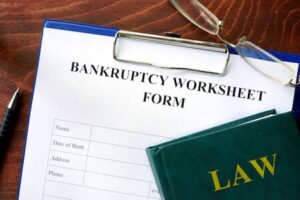
SKILLED IN HOME FORCLOSURE CASES
Losing a home to foreclosure is a devastating event. Not only must a family pack up and move, but they might lose money in the foreclosure process. Foreclosures are messy, and we do not blame homeowners for wanting to do anything reasonably possible to avoid one.
At Groth & Associates, we strategize with our clients to keep them in their homes. Our team has experience working with lenders to modify mortgages or seeking a temporary reprieve from monthly payments with forbearance. If necessary, we can also defend against foreclosure in court.
Below, our Toledo home foreclosure prevention lawyer looks at different strategies our clients have taken. Contact us today.
For a free legal consultation with a Personal Injury lawyer serving Toledo, call (419) 930-3030
FORECLOSURE MEDIATION
Mediation is sometimes successful at getting lenders and homeowners to reach an agreement on how to modify a mortgage. Foreclosure mediation is voluntary, but the presence of a neutral third party can help each side see areas of agreement that they might have been blind to on their own. A homeowner can have a lawyer help them in mediation.
Personal Injury Lawyer Near Me (419) 930-3030
LOAN REINSTATEMENT
If you can catch up with all overdue payments, you might be able to reinstate the loan, provided you also pay for the costs of the foreclosure action. Ohio law doesn’t give you a right to reinstatement, but your mortgage agreement might provide one.
Loan reinstatement is sometimes unrealistic, especially for people feeling financial distress. However, others can free up money by clearing other debts. If you want to reinstate your loan, you should move quickly with a lawyer’s help.
LOAN MODIFICATION
Many people struggle to pay a mortgage payment because its terms are too onerous. With a mortgage modification, a lender can change the terms of the loan so that the monthly payment is lower.
One option is to stretch out the length of the loan from 30 to 40 years. This type of mortgage modification ultimately costs borrowers money because they will pay more in interest over the life of the loan. However, the lowered monthly payments might be what is necessary to continue to stay in the home.
The lender might also agree to lower the interest rate, which can directly reduce the monthly cost and the overall cost of the mortgage. This is an attractive option if you had an adjustable-rate mortgage which soon became too expensive.
Lenders could also reduce the amount of principal owed, though that is less likely to happen. Homeowners are free to try and modify their loans without legal counsel, but a lawyer is a definite benefit.
Complete a Free Case Evaluation form now
FORBEARANCE AGREEMENT
If your financial problems are temporary, a lender might agree to suspend payments for a short period of time, at least until you can get back on your feet. Once you start paying again, you’ll pay a little more to catch up on the mortgage payments you missed, as well as accumulated interest and other fees.
To get a forbearance agreement, you need to convince a lender that your problems are truly temporary. For example, you might have suffered a workplace injury that is expected to heal in a few months. If you don’t know when you will be able to return to work, then a forbearance might not be for you.
PARTIAL CLAIM
Some of our clients seek help from the Department of Housing and Urban Development (HUD), which might grant a “partial claim.” This is essentially a loan for the amount you are in arrears for on your mortgage. A person who is behind to the tune of $6,000 can get this amount of money from HUD and now be current.
In exchange, HUD places a lien on the property. This lien entitles HUD to payment in the event you sell your home or refinance it. You might also choose to pay off the loan without selling, which you can do without penalty.
To qualify for a partial claim, you must show that you do not have the financial resources to get current on your mortgage but that you do have the money to make mortgage payments going forward. Partial claims are only available if the home is your primary residence.
SHORT SALE
Sometimes, selling the home for its current market value is the easiest way to get disentangled from a home mortgage. Short sales can happen quickly and can avoid having a foreclosure listed on your credit history.
DEED THE PROPERTY BACK
You might skip the foreclosure process altogether and simply use a deed-in-lieu-of-foreclosure to give the property back to the bank. This option avoids a foreclosure on your credit and can save money, especially when you know there is little chance you can continue to pay any type of mortgage. We can discuss whether this is an option to pursue.
FORECLOSURE LITIGATION
Banks must typically wait until a borrower is delinquent for over 120 days before beginning any legal action to foreclose on the property. Foreclosures are judicial actions, which require filing suit in court. A homeowner should receive a notice and a chance to respond.
Many banks do not follow the rules, or they have weak documentation to back up the fact that a homeowner has been delinquent. Some large banks are very sloppy documenting mortgages, and more than one homeowner has been able to prevent or delay foreclosure by fighting it in court.
SPEAK WITH A TOLEDO HOME FORECLOSURE PREVENTION LAWYER TODAY
Every homeowner’s situation is different, and there is no one-size-fits-all approach that works for everybody. Some homeowners will be happy to get rid of the property via short sale or a deed and then begin working toward homeownership in the future when they are more financially stable. Others will do anything to stay in their current home because it is often too costly to move.
Reach out to Groth & Associates today. We can take a full, 360-degree view of your financial situation and determine what is the best option for you. We will also gladly represent you as you negotiate with your lender or mortgage servicer. Please contact us to schedule your free consultation.
Call or text (419) 930-3030 or complete a Free Case Evaluation form


